Latest News
Somali Women’s Advancement in Ohio: "New Americans Initiative"
Posted by on October 30, 2014 at 1:00 PM EST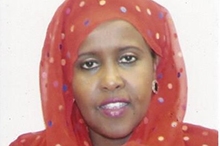
Khadra Mohamed is being honored as a Promoting Citizenship in the Workplace Champion of Change.
It would be difficult for anyone to move into a new country and re-learn everything—a new language, cultural nuances, and social environment. I arrived in Ohio in 2000 amid a large influx of Somali immigrants to the state. There were no existing community-based organizations at the time, so a group of Somali women, including myself, met to form a community service organization to facilitate the smooth integration of the Somalis into their new home. Since then, the Somali community in Ohio has gone through remarkable transformations.
The greatest needs in the community were English as Second Language (ESL) classes, employment services, and housing assistance. We established successful partnerships with existing social service organizations such as the Jewish Family Services and educational institutions including the Ohio State University. We were successful in recruiting volunteer navigators and securing funding for English classes and job placement services. We also engaged in an effort to educate local elected officials and policymakers about the needs and aspirations of our community. One of the most rewarding aspects of the work that we started was that a significant number of Somalis have become U.S. citizens and have enrolled in college.
Somalis, wherever they are, have a natural gift for entrepreneurship. Somali women are particularly skilled at successfully starting and running small businesses. They even have a unique system, known in Somali as “Ayuuto,” for raising capital for new business endeavors. Many Somalis have become U.S. citizens and have started successful businesses. Now, there are hundreds of Somali business in Columbus, Ohio alone.
This progress from a new immigrant community to locally integrated part of the Columbus fabric did not come easy. It came as a result of not only hard work by the community but also the embracing nature of the City of Columbus. Columbus Mayor Michael Coleman believes that it is not just enough to be tolerant towards diversity; it is necessary to embrace it. That is why he created the New Americans Initiative, an office that gives immigrants access to city services.
To recognize the economic and social contributions of Somalis in Ohio, I proposed to the Board of Directors of the Center for Somali Women’s Advancement that we start an annual recognition day for citizenship and entrepreneurship in Ohio on March 8—and they agreed. Now, every year, we celebrate the contributions of diverse women and call for a better society in which gender parity in politics, health, employment, family life, education, media, and culture becomes a reality.
This is a lesson for all of us that we need to take initiative and work together to accomplish real things; with this approach, we can turn brilliant ideas into impressive outcomes.
Khadra Mohamed is the President and CEO of the Center for Somali Women’s Advancement.
Learn more about ImmigrationWhy Supporting Citizenship is Good for Business
Posted by on October 30, 2014 at 1:00 PM EST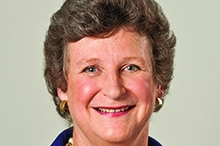
Barbara Kamm is being honored as a Promoting Citizenship in the Workplace Champion of Change.
Many of us in Silicon Valley are working to help meet the predicted workforce needs of the next decade. This includes providing better, more efficient training and education in our community colleges and universities and creating opportunities for foreign-born workers who are legal, permanent residents and eligible to apply for U.S. citizenship.
San Francisco Bay Area businesses like Tech CU are creating partnerships with organizations such as the National Immigration Forum’s New American Workforce, which assist our customers and employees with information on citizenship.
There are approximately 536,000 immigrants in the Bay Area who meet are eligible to apply for citizenship. These individuals do everything from writing code to treating patients—and they can be part of the solution that addresses the evolving needs of U.S. companies. Yet, many never take that final step towards citizenship, leaving critical benefits on the table, such as increased earnings, greater access to job opportunities, and the ability to petition for family members.
Working with local community legal service, companies like ours are hosting free citizenship seminars, where individuals receive legal assistance with their application for as little as $90. Some of the New American Workforce employer partners also host English-language training and civics courses.
Why are we so invested in our employees? It’s good for business. By providing access to citizenship guidance and legal services, we are ensuring a robust, diverse labor force dedicated to the mission of our company.
Encouraging our employees to attain citizenship strengthens the U.S. workforce and drives innovation within this country. This can lead to new developments in medicine, infrastructure, and agriculture, benefitting our economy, our country, and our world.
Barbara Kamm is President and CEO of Tech CU.
Learn more about ImmigrationFocusing on People and Partnerships are the Keys to Providing the Benefits of Citizenship to Employees
Posted by on October 30, 2014 at 1:00 PM EST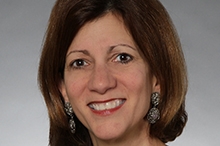
Wendy Kallergis is being honored as a Promoting Citizenship in the Workplace Champion of Change.
Nearly a century ago, at the height of the U.S. immigration boom, Bethlehem Steel became one of the first U.S. employers to begin providing free English language instruction to its immigrant workers. Today, the National Immigration Forum’s Bethlehem Project continues that mission by facilitating the citizenship of the country’s eligible immigrant workforce.
My family and I have lived in Miami for more than thirty years. Caring about the families who live in our city has always been very important to us, so it was an easy decision to help introduce South Florida to the Bethlehem Project.
With more than 500,000 employees eligible to become citizens, Miami is one of the cities with the most potential for the Bethlehem Project. The project’s goal is simple: Help eligible immigrants become citizens, which not only helps immigrant families but also businesses in South Florida.
My work is in the hospitality industry, and partnerships have always been an integral part of my strategy to build a stronger organization. In South Florida, the Bethlehem Project has worked with Baptist Health South Florida, the Miami Dolphins, and Miami Dade College. Within the hospitality industry, I’ve helped connect the Bethlehem Project with numerous hotels and resorts. As the project expands, we will continue to reach out to colleagues in other cities, like the San Francisco Hotel Council.
What we’re doing is simplifying the citizenship process: cutting back on bureaucracy, creating in-house workshops, and connecting immigrants and new citizens with employers and human resource representatives in the hospitality industry.
The benefits are crystal clear: We’re providing our industry with an expanding workforce, and we’re creating a sense of loyalty among our workers. At the same time, we’re opening doors and generating prosperity for immigrant families and our community.
Our board and our membership embraced this program, as our employees are at the heart of the hospitality industry. Being honored as a Champion of Change for my work on this project is truly an exciting and humbling recognition.
The human resources director of one of our first business partners said it best: “With this partnership, we demonstrate to our employees that we care and support their best interests as much as we care for our community.”
Wendy Kallergis is President and CEO of the Greater Miami & The Beaches Hotel Association.
Learn more about ImmigrationCitizenship in the Workplace
Posted by on October 30, 2014 at 12:59 PM EST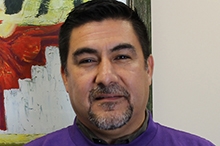
David Huerta is being honored as a Promoting Citizenship in the Workplace Champion of Change.
For centuries, this nation’s economy has been strengthened by the backbreaking work of immigrant laborers who built our infrastructure and put food on our tables. This immigrant legacy makes me proud to serve as President of SEIU United Service Workers West, a union comprising workers from all walks of life who are contributing to the prosperity of our great country.
Whether they are out in the streets demanding a living wage and decent benefits, or talking to their elected officials to stop wage theft or inappropriate police practices, immigrant workers in our union are paving the way to a better way of life for everyone in our communities. The goal is simple: provide better opportunities for our kids than what we had growing up.
We’re accomplishing that in a unique project called Building Skills Partnership, which brings together workers, employers and building owners to give immigrant workers a fair shot at career advancement and community engagement. The collaboration has allowed more than 1,000 immigrant workers to participate in English language classes, computer literacy programs, and other educational trainings.
Integrating new Americans into our communities has also been a priority. SEIU locals in California, including United Service Workers West, have partnered with Mi Familia Vota to assist over 5,400 Legal Permanent Residents with the citizenship process. Together, we’ve developed broad coalitions throughout California that have been instrumental in ensuring that California leads the way on legislation that respects and values the contributions of immigrants, such as enabling them to obtain drivers' licenses and to receive in-state tuition.
Looking back at these accomplishments, I’m truly honored to be named a “Champion of Change” for promoting citizenship in the workplace, but I think the true recognition belongs to the brave janitors and other immigrant workers across California who are working to make sure that our country builds on all of our strengths to prosper in the 21st century.
David Huerta is President of SEIU United Service Workers West.
Learn more about ImmigrationCitizenship: A New Strategy for Financial Inclusion and Inclusive Economic Growth
Posted by on October 30, 2014 at 12:59 PM EST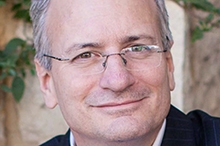
Bob Annibale is being honored as a Promoting Citizenship in the Workplace Champion of Change.
At Citi, we are focused on innovative and practical solutions to ensure that communities have access to resources and opportunities that enable them to achieve their potential and to climb up the economic ladder. Immigrants are, historically and increasingly, a dynamic part of our neighborhoods, and their financial success is directly tied to our nation’s economic growth. That is why Citi joined the mayors of Chicago, Los Angeles. and New York, as well as The Center for Popular Democracy and The National Partnership for New Americans, as the founding corporate partner of Cities for Citizenship.
Cities for Citizenship is a major national initiative that recognizes the contribution of immigrants and how citizenship can serve as an economic asset. It aims to increase citizenship among eligible U.S. permanent residents, as well as encourage cities across the country to invest in citizenship and financial capability programs.
On behalf of Citi, I am honored to be named as a Champion of Change by the White House. But I must share this recognition with all of my coworkers at Citi and with our partners who have provided critical national leadership, especially Mayor Bill de Blasio, Mayor Rahm Emanuel, and Mayor Eric Garcetti.
Our shared goal is to increase access to legal and financial services and contribute to enabling more inclusive cities across the country. Through this program, cities and their community partners will deliver financial counseling, legal support, application guidance, naturalization test preparation, and other assistance to eligible immigrants.
This initiative and partnership will enable immigrants to build a valuable financial identity as they also pursue a national identity. This is critical since the Federal Deposit Insurance Corporation reports that about 20 percent of foreign-born households have never had a bank account, which has driven immigrants to use alternative financial services that often come with higher costs and risks. Instead, Cities for Citizenship aims to build a stronger foundation for the American Dream.
Moreover, it is a strategy that makes good economic sense.
There are approximately 8.8 million legal permanent residents in America who are eligible for citizenship. These are documented residents who pay taxes and work lawfully. Yet, 52 percent of them remain low-income. Their naturalization would provide access to better-paying jobs, academic scholarships, and other benefits. It would also provide billions of dollars in stimulus to the national economy over the next few years.
This would mean up to $1.6 billion for Chicago’s economy, $2.8 billion for the Los Angeles economy, and a $4.1 billion boost for New York City’s economy, according to the report “Citizenship: A Wise Investment for Cities.”
Cities for Citizenship considers citizenship and immigrant integration as powerful platforms to promote widespread financial inclusion and truly inclusive economic growth. We are excited to work with more municipalities on this project and share the collective efforts of our partners with The White House.
Bob Annibale is the Global Director of Citi Community Development, which leads Citi's initiatives and partnerships supporting inclusive finance.
Learn more about ImmigrationDedicating His Life So Others Could Live Their Own
Posted by on October 27, 2014 at 9:35 AM EST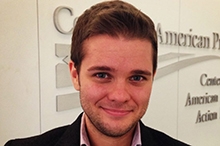
Andrew Cray is being honored posthumously as an Affordable Care Act Champion of Change.
Andrew Cray dedicated his life to making sure others could live their own.
Every day, Andrew fought tirelessly for lesbian, gay, bisexual, and transgender, or LGBT, Americans to be treated with dignity and fairness. His work touched so many lives in so many ways, from working to secure protections for LGBT homeless youth to collaborating with the Obama Administration to implement the Supreme Court’s marriage equality rulings. At the center of his work, however, was his belief that the foundation of equality rests on the ability of all Americans to access comprehensive, affordable, and inclusive health care.
Andrew was just 28 years old when cancer tragically took his life this past August, but his passion for equity in and access to health insurance existed long before his diagnosis. As a transgender man, Andrew knew the challenges and the needs of the LGBT community personally and was all too familiar with the common occurrence of transgender people being denied insurance simply because of their gender identity, as well as with the startling statistics. According to a recent Center for American Progress report, one in three LGBT people with incomes at or below 4 times the federal poverty line lacked insurance, and 72% of gay, lesbian, and bisexual people reported experiencing discrimination when attempting to find coverage through their employer for a same-sex partner. The eternal optimist that he was, Andrew believed that, with the right reforms and the improvements, those numbers could change.
Like many LGBT Americans, Andrew saw the Affordable Care Act as a vehicle for change and an opportunity to open up life-saving medical care to a community too often systemically and financially excluded. After passage, he worked with the White House and the Department of Health and Human Services to end discrimination against LGBT people by health insurance companies. He collaborated with the federal government and state governments to ensure accurate data collection on sexual orientation and gender identity, which will serve as the foundation of future LGBT health advocacy. Andrew also worked with various partners to ensure that many of the new insurance options were inclusive of same-sex couples and transgender Americans.
As important as these reforms are, he also knew that, for the law to work, people needed to be educated and enrolled, which is why he, along with colleagues at the Center for American Progress, Sellers Dorsey, and the Federal Agencies Project, co-founded Out2Enroll. Over the last year, Out2Enroll has helped educate and connect countless LGBT Americans with their new coverage options under the Affordable Care Act.
All of this work took on a new meaning for Andrew when, in September 2013, he was diagnosed with cancer. Throughout his treatment, he continued his legal advocacy and outreach work but also decided to utilize his personal story to convince young Americans, including young LGBT Americans, to enroll in health insurance. In an op-ed in The Advocate, Andrew wrote, “Our LGBT community is resilient and strong, and particularly for those of us who are young and have our entire lives in front of us, it may feel like we are invincible. I’ve learned the hard way that I’m not.”
Several months later, this past July, Andrew found out that his cancer had returned and that it was terminal. As his partner, and soon to be wife, I sat with Andrew as we discussed what he wanted to do with the time he had left. He said he wanted to continue his life’s work: fighting to ensure that all Americans, including LGBT Americans, can access life-saving medical care.
One month later, Andrew passed away far too quickly and far too young, but the benefits of his work live on. As he wrote in The Advocate last March, “Cancer has taken a lot from me physically and emotionally. But it hasn’t taken away my voice…I want to make sure other young LGBT people understand why getting covered is so important. I hope that my community will listen when I say — please, take care of yourselves. Be out, be healthy, and get covered."
Sarah McBride is the Special Assistant for LGBT Progress at the Center for American Progress and authored this blog post on behalf of Andrew Cray. Andrew Cray was a policy analyst at the Center for American Progress. He was her husband and colleague.
Learn more about Health CareThe Affordable Care Act as Viewed by a Sister of Mercy
Posted by on October 27, 2014 at 9:35 AM EST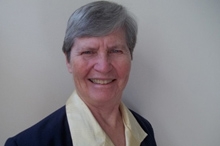
Joan Serda is being honored as an Affordable Care Act Champion of Change.
As an educator, I know the importance of health care. I’ve always had the privilege of having health insurance, so I’ve never had to worry about paying a medical bill or paying for a prescription. I haven’t had to be concerned about how to pay for the care of a sick child, spouse, or parent.
In Georgia, there is a lot of poverty, and many people don’t have health insurance. In Bibb County, where I live, there are tens of thousands of young people without health insurance.
Emergency rooms are not the answer to good health care. They are intended for emergencies. Emergency room visits are time-consuming and should be a last resort. They result in very expensive care and no follow-up. Often, patients don’t improve, and visits simply reoccur.
The Affordable Care Act is a step in the right direction, enabling many to obtain health insurance that they can afford. If children are healthy, they will learn more, and our schools will improve. If adults are healthy, they will be able to work more effectively and help their children grow, be healthy, and contribute to society.
I know a woman who had a possible cancer but refused to go to the doctor because she couldn’t afford it. But now, through the Affordable Care Act, she was able to get insurance and see a doctor. Another woman I know had insurance through her employer, but coverage through the ACA drastically reduced her premium without sacrificing health insurance coverage.
As a Sister of Mercy, I vowed to serve the poor, sick, and uneducated. Working with Get Covered America gave me the opportunity to help people become better educated about health coverage. I volunteered for ten hours a week to help people understand the Affordable Care Act. Many people were unaware of the opportunities available, and many had seen and heard false information. Some were fearful of something new and did not understand how health insurance works. Much education is needed, so I will continue as a volunteer for Get Covered America during the upcoming enrollment period.
Joan Serda is the Assistant Justice Coordinator for the Sisters of Mercy of the Americas South Central Community.
Learn more about Health CareMiami Dade College Leads with Initiative to Reach Students and Engage Community
Posted by on October 27, 2014 at 9:35 AM EST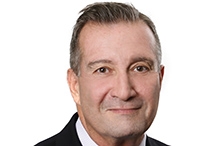
Joe Pena is being honored as an Affordable Care Act Champion of Change.
Miami Dade College (MDC) is the higher education institution with the largest campus-based enrollment in the United States, serving more than 165,000 students. Under the leadership of its president, Dr. Eduardo J. Padron, the institution has been elevated to national prominence for its innovation, programs of excellence, and service to the community.
President Padron designated me to coordinate a college-wide initiative to educate students, faculty, and the local community about their options under the Affordable Care Act. I was incredibly motivated to work on this project. Early on, we formed a partnership with Get Covered America, which sparked local community organizations and volunteers to assist with our efforts. We organized a series of successful educational outreach events, including workshops on multiple campuses. These events provided key information and enrollment assistance to all with an interest in signing up for health insurance.
The informational workshops were held on Saturdays and weeknights in the computer courtyards of four of our campuses stretching across all of Miami-Dade County. Holding these workshops in our computer courtyards allowed the trained assisters to educate the participants, explain the enrollment process, and answer questions directly.
Although I spearheaded this initiative, it came together as a result of the contributions of many in our institution. For Miami Dade College, this was an “all hands on deck” project focused on our students and local community. From our College and campus leadership to our administrators to our computer technicians and support staff, we were all motivated to pitch in, educating and assisting others about their health care options. The College District Office of Communications played a key role in announcing our outreach activities, generating media attention, and encouraging all to visit the HealthCare.gov website.
In the next enrollment period, we plan to once again partner with Get Covered America and the other community organizations to run educational workshops and to engage our communications network. In addition, we are organizing “office hours” on our campuses, allowing students and community members to set up individual enrollment assistance appointments with the trained assisters from the community organizations.
This MDC initiative is credited with having made a significant impact, improving the access to health care for thousands of residents in Miami-Dade County and throughout South Florida. I am proud to have been a part of this effort and to have been designated a “Champion for Change”.
Joe Pena is the Director of Federal Relations for Miami Dade College.
Learn more about Health Care
- &lsaquo previous
- …
- 15
- 16
- 17
- 18
- 19
- 20
- 21
- 22
- 23
- …
- next &rsaquo


Twitter